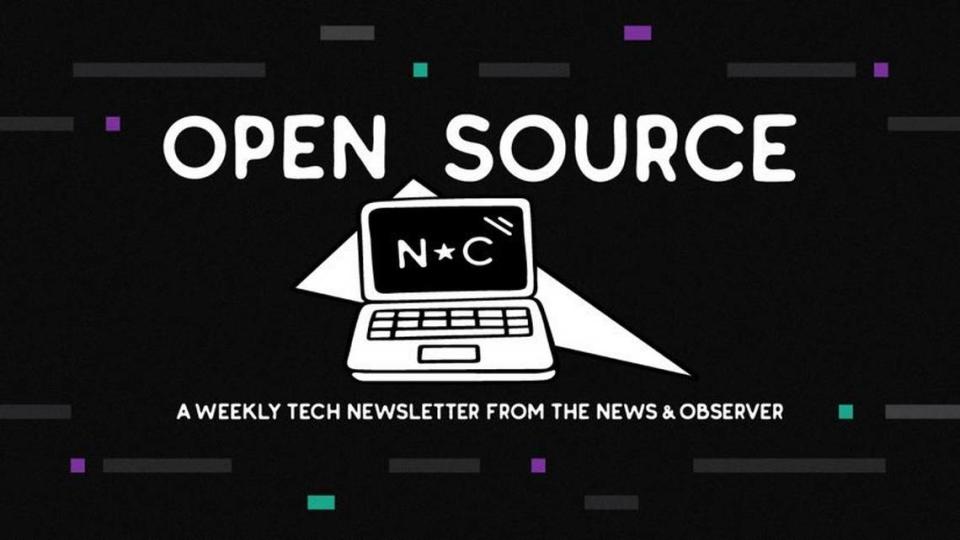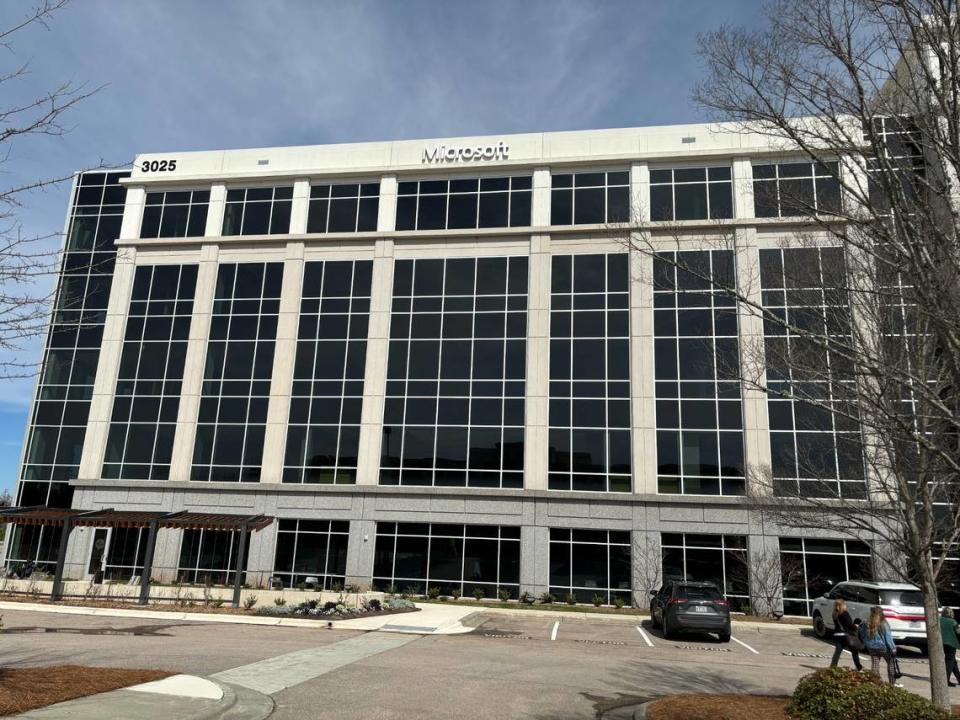Open Source: Union advocate ‘salts’ quietly take jobs inside Amazon warehouse near Raleigh
I’m Brian Gordon, tech reporter for The News & Observer, and this is Open Source, a weekly newsletter on business, labor and technology in North Carolina.
Around 5,000 people work at RDU1, Amazon’s sprawling four-floor fulfillment center in the Wake County town of Garner. A few clock in harboring covert intentions.
Ahead of May Day this week, I checked in with the Carolina Amazonians United for Solidarity and Empowerment, or C.A.U.S.E., which launched in early 2022 to unionize the facility’s workforce. Amazon is the nation’s second-largest private employer and no fan of unions. North Carolina is the nation’s second-least unionized state and lacks a robust organizing track record.
Any union campaign at RDU1 was always going to be a process. So, when people approach C.A.U.S.E. about how to contribute, group organizers have suggested some take jobs there. This is a common, if controversial, organizing tactic known as salting, in which pro-labor advocates get hired at workplaces they wish to unionize. These workers, known as salts, complete shifts alongside colleagues while accessing spaces regular organizers can’t.
“We’ve supported some people who are inside now that are salts,” said Adam Stromme of C.A.U.S.E.
At some workplaces, salts are paid organizers who get recruited and trained by large unions to cultivate support. But at RDU1, Stromme insists his independent organizing group doesn’t have the desire or budget to coordinate a formal salting campaign.
“The initiative comes from outside to C.A.U.S.E., not from C.A.U.S.E. to other people,” Stromme said.
The 100-year-old strategy can be a sensitive topic. Organizers worry management will portray it as a sign of an inorganic campaign. And employers tend to despise salts. Sean Redmond of the U.S. Chamber of Commerce deemed salting a “potentially destructive tactic,” in a 2022 post. This March, a Republican U.S. representative proposed a bill that would make employers more aware of salts.
“That’s one of the issues employers have raised, that it’s a conflict of interest,” said Eric Fink a labor law professor at Elon University. But as Fink pointed out, salting is a federally protected labor activity; in 1995, the U.S. Supreme Court upheld the practice, even when job applicants are also paid by a union.
“You take the job, you have to do the work,” Stromme said. “It makes no difference what’s in their head. You’re still scanning packages at the same rate as any other worker.”
Still, Stromme said it’s best to hide the existence of salts from employers whenever possible. Advocates label Amazon a union buster, and the company faced 240 open or settled unfair labor practice charges at the end of last year, according to the National Labor Relations Board, including accusations of illegal behavior around union elections. Just this week, an NLRB judge found Amazon CEO Andy Jassy had violated federal labor law when he said workers would be “better off” without a union.
In February, Amazon argued the NLRB is unconstitutional.

No union election appears imminent at RDU1. Before calling for a vote, organizers must obtain union authorization cards from at least 30% of employees. In practice, the necessary percentage tends to surpass 50% before unions will ask the National Labor Relations Board for an election.
Stromme said C.A.U.S.E. isn’t ready to collect cards. For now, the group is power mapping the 2 million-square-foot complex to see where support is growing and stagnating. The organization believes having a federally recognized union can deliver its demands for $30-an-hour wage for entry-level employees, 180 hours of personal time off, paid sick leave, and a one-hour lunch break (compared to the current 30 minutes.)
If salts pitch in to achieve these goals, C.A.U.S.E. won’t mind.
In a statement to the N&O, Amazon spokesperson Eileen Hards said, “Our employees have the choice of whether or not to join a union. They always have. We favor opportunities for each person to be respected and valued as an individual, and to have their unique voice heard by working directly with our team. The fact is, Amazon already offers what many unions are requesting: industry-leading pay, health benefits on day one, and opportunities for career growth.”
Disclose and divest was easier in the ’80s
Divestment demands on college campuses today may echo the South Africa divestment movement of the 1980s, but pulling endowment money from any particular country is much, much harder now. There are external endowment managers and a more complex endowment investing approach called the Yale Model. Plus, colleges don’t even know where all their endowment money is precisely going — and they aren’t always entitled to find out under the current setup.
This week, I spoke to three people with UNC-Chapel Hill ties (a former chancellor, a finance professor, and a current board of trustees member) to learn more about whether divesting from Israel is feasible. Spoiler: The answer is not very.
Investing in general was much simpler 40 years ago. In 1986, UNC-Chapel Hill was able to identify that 7.5% of its $100 million endowment was held in traditional stocks and bonds from companies with ties to apartheid South Africa. In modern times, however, there are commingled investment vehicles and private venture-backed buyouts. Disentangling how much of a multibillion-dollar endowment is linked to a developed nation like Israel is all but impossible.
Furthermore, North Carolina actually outlaws state agencies from investing in, or making contracts with, companies that are boycotting Israel. The law was passed in 2017. Ben and Jerry’s was added to the list last year. It’s difficult to imagine UNC, while not a company per se, being next.

Clearing my cache
A proposed state bill would ban cryptocurrency mines in three Western North Carolina counties. These noisy sites have sparked plenty of ire in a handful of rural communities statewide in places like Murphy, Asheboro and Greenville.
Ricoh, a Japanese printing company, opened a new office at North Carolina State University’s Centennial Campus that will focus on 3-D printing technologies.
The cybersecurity startup (and one-time unicorn) JupiterOne will have a new CEO. Founder and outgoing CEO Erkang Zheng will step aside from leading the Morrisville company but will remain as board chair. Paul Forte, the company’s current chief operating officer, will take over as CEO.
“This decision comes with a deep commitment to continue focusing on what I love most — product innovation and engaging closely with our customers and partners,” Zheng said in a statement.
More details on Microsoft’s shrinking office footprint in the Triangle. The company exited a lease for around 39,000 square feet in Morrisville, a source familiar with the deal said, and wants to sublease another 20,000 square feet. The tech giant still has close to 190,000 square feet of office space at the Perimeter Park complex.
North Carolina continues to love lithium-ion battery jobs. On Thursday, the state approved an incentive package for another lithium-ion battery parts company to build its first U.S. facility in Lincoln County, north of Charlotte. For more recent lithium-ion projects in North Carolina, see here, here, here and here.
But will wavering electric vehicle demand affect this lithium love affair? Slowing EV trends certainly seem to be making Wolfspeed investors nervous. The Durham chipmaker saw its already slumping stock fall 8% Thursday following an earnings release. And a prominent activist investor lurks.
Back to incentives: North Carolina awarded a jobs grant worth up to $4.1 million in future payroll tax benefits for the New York window maker Crystal Window and Door Systems to build a 500-worker factory in Johnston County.

National Tech Happenings
Hoping to reverse mounting disaffection with dating apps, Bumble will now let men initiate conversations.
Peloton announces more layoffs and its CEO exits (or runs away?).
The European Union will investigate Meta, Facebook’s parent, over election misinformation.
Thanks for reading!


